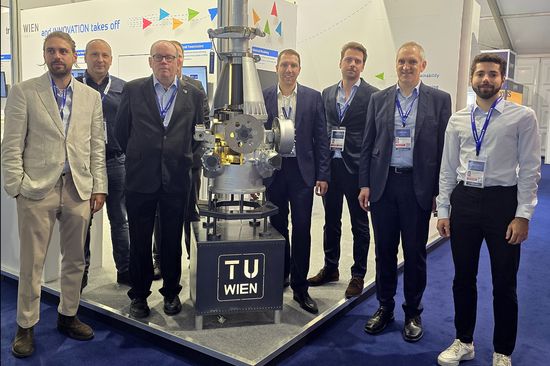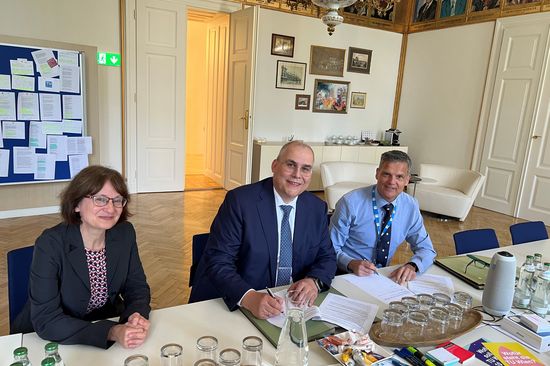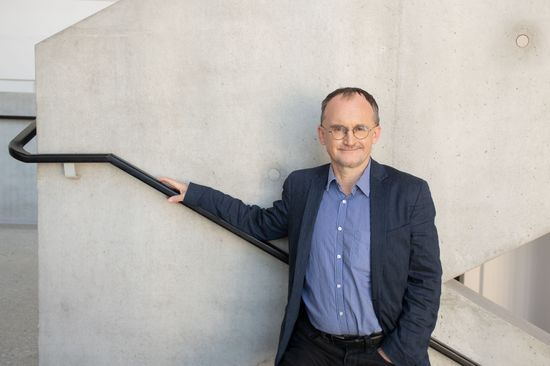The success of motorised transport during the last century led to one of the biggest societal upheavals in human history. It began with the globalisation of passenger and goods transport by land, sea and air which brought many regions of the world closer and led to an unprecedented growth in prosperity. On a regional and local level, the high availability of mobility has become an essential aspect of modern life.
To meet the challenges associated with the mobility boom, such as dependence on fossil fuels, harmful emissions and overburdened transport routes, TU Wien has established the research field Sustainable and Low Emission Mobility. The researchers pursue a multi-layered approach, that concentrates not only on the development of individual key technologies, such as electromobility, but also embraces systemic, political, commercial and social aspects. The goal is the creation of a multi-modal traffic mix in which private and public, motorised and non-motorised transport make up a sustainable and low-emission system.
Technology in motion
Scientists are focussing much of their attention on the development of alternative drive trains for electric, hybrid, fuel cell and gas vehicles. In addition to the creation of overall system concepts and operational strategies, this includes the (further) development of individual technical components such as electric motors and high-performance control electronics. Many of the developments are initially entirely virtual on the PC. In addition to strong expertise in the field of such modelling – both of individual motors as well as entire drive trains – the TU Wien institutes also possess extensive equipment for the actual measurement of relevant parameters such as component and motor test benches, roller dynamometers and also climatic chambers. They also have the infrastructure to design and construct prototypes for drive components (electric motors, power electronics, control technology).
Aside from the drive technology, vehicles contain countless other components which determine their ecological footprint. For example, fuel consumption can be reduced through the use of lightweight materials, such as those being researched at TU Wien. Experts in the field of tribology are also aiming to minimise friction between moving parts and thereby extend their service life and efficiency.
For modern vehicles to respond to current conditions in real time and be able to optimise all operating parameters, sophisticated sensors are needed which process information from high-performance electronics.
Energy and infrastructure
A sustainable energy supply is at the heart of an environmentally friendly and sustainable mobility concept. The aim must be to reduce dependency on limited fossil fuels, which could be achieved by substituting classical fuels with biofuels such as biodiesel or biogas. Researchers at TU Wien are carrying out research into production processes for alternative fuels as well as their use in combustion engines. Furthermore, academics are looking into the potential of hydrogen as the energy source of the future.
Electromobility offers a promising alternative to conventional fuels. Supplying electrical energy from the grid poses a particular challenge which, due to the expected quantities needed, requires new concepts for intelligent grid integration. Once the electrical energy has been fed into the vehicle, it also needs to be stored efficiently and in sufficient quantities. Researchers at TU Wien are working on electrochemical principles for constantly improving batteries and are trying to get as much power as possible out of these with the aid of sophisticated battery management systems.
Although it is a raw fossil fuel, natural gas is far superior to other conventional energy sources in terms of CO2 and particulate emissions. With this advantage in mind, TU Wien is carrying out research into the variety of ways in which this energy source could be used.
Even the most sophisticated vehicle using the perfect energy supply cannot achieve its full potential without suitable infrastructure. For example, the success of electromobility depends directly on the existence of a well-developed network of charging stations. To plan such a network, demand must increase, sustainable provision of energy must be secured and practical operations management must be developed.
In line with a future-oriented approach, one of the key areas of infrastructure research is public transport and non-motorised traffic. This includes the diverse field of rail transport while concepts and technologies for buses, and last but not least for bicycles, are also being developed. In the not-too-distant future, individual road users will also be networked to one another and exchange data about the current traffic situation to ensure journeys are as smooth as possible. To do so, the exact position of the individual vehicles must be known along with other data. Control of autonomous vehicles, in particular, requires maximum precision, a challenge faced by experts in the field of navigation.
Mobility concepts
To get all these developments underway and respond suitably to the various requirements, decision-makers in politics, business and science need well-prepared analyses and concepts. These are created by researchers in the field of traffic concepts and mobility management. The analyses take into account the political frameworks, user behaviour, the economic and ecological aspects and the interactions between these areas as well as current traffic data. These investigations are used to develop scenarios and create regional traffic concepts.
The field of mobility is as varied as the approaches taken by the researchers at TU Wien. However, the common aim of all these efforts is to reduce the amount of energy consumed by transport, to drive the energy revolution and pave the way for sustainable mobility for humanity through the use of sustainable technology and concepts.
Traffic concepts and mobility management
- Regional traffic concepts
- Analyses
- User behaviour
- Political frameworks
- Scenarios
Energy supply
- Production and use of alternative fuels
- Energy storage
- Energy and grid management
Infrastructure
- Public transport and non-motorised traffic
- Navigation
- Charging stations/filling stations
- Street
Technology
- Alternative drive systems (electric/hybrid/gas)
- Components
- Modelling and measurement
Four faculties at TU Wien are active in this field of research in particular – Mechanical and Industrial Engineering, Civil Engineering, Architecture and Planning, and Electrical Engineering and Information Technology. Research groups from 21 institutes are working on all aspects of sustainable and low-emission mobility, primarily in applied research with a strong connection to basic research activities.
Approximately 5.5 million euros is invested in over 120 research projects per year. In general, there has been a rise in the academic output in recent years – with a significant rise in non-SCI publications.
All data and information provided relates to the research period 2016-2018 (based on the period of the Performance Agreement).
![[Translate to English:] Moblität](/fileadmin/_processed_/4/2/csm_E2_titelbild_aef1bd6c0a.jpg)
![[Translate to English:] Mobilität](/fileadmin/_processed_/b/8/csm_TU_En_Um_Icon_Mobilitaet_9f65726dcc.png)





